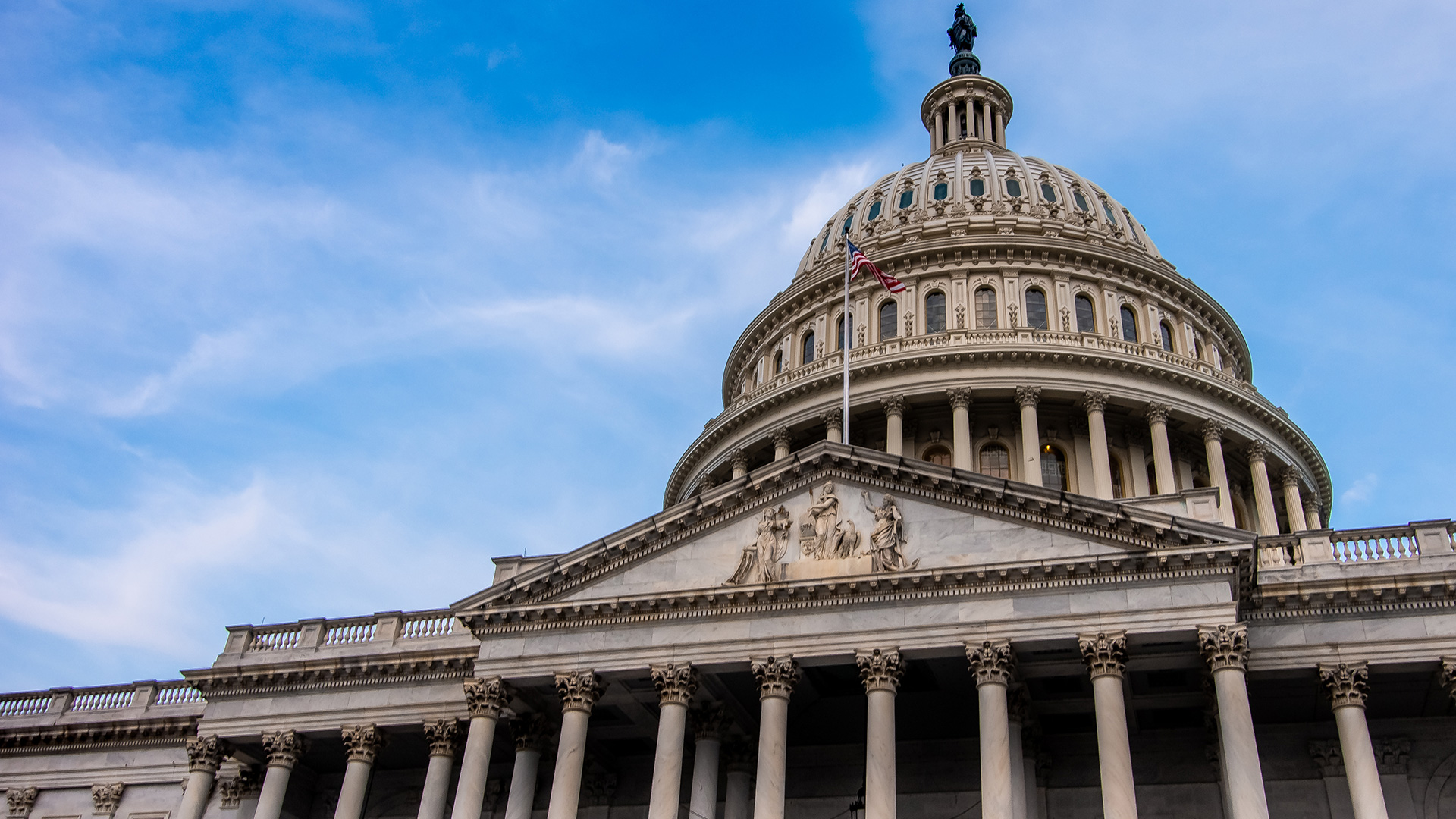
Smith’s Michael Faulkender testified with other experts on “The Fiscal Situation of the United States” before the U.S. Congress Joint Economic Committee on March 12, 2024.
Faulkender, Dean's Professor of Finance at the University of Maryland’s Robert H. Smith School of Business and former Assistant Secretary for Economic Policy at the Treasury Department, was joined by Senior Policy Fellow Michael Linden at the Washington Center for Equitable Growth, UCLA Law School tax policy professor Kimberly Clausing and Cato Institute Director of Budget Entitlement Policy Romina Boccia.
During the pandemic, Faulkender helped negotiate the CARES Act and was the senior Treasury official responsible for implementing the Paycheck Protection Program.
Early in last week’s hearing, the committee’s vice chair, Rep. David Schweikert (R-AZ), asked Faulkender to explain the correlation between personal finances and the national fiscal situation.
Faulkender replied: If you think about the economy that was in place in January of 2021, we were seeing a nice recovery from the pandemic. By the middle of 2021, we had returned to both economic output prior to the pandemic and the level of employment. And yet at the beginning of the Biden Administration, an additional $2 trillion of fiscal stimulus was thrown into an economy that was largely already recovered. So as a result, we saw inflation here in the United States take off much faster than elsewhere around the world, coupled with an administration that singularly focused on reducing the ability of the United States to be energy independent to take energy resources offline. We saw the energy sector didn’t recover until 2023 despite the rest of the economy in ‘21. So, all of these things stimulated demand at a time when we were curtailing the ability of the U.S. economy to fulfill that demand, and the natural result is inflation. Then the Federal Reserve came in late to the party in order to try and curtail some of the excess of the really low interest rate environment that was in place. And in order to catch up they increased interest rates extremely quickly. We saw mortgage interest rates go from about 3 to about 7 percent. So not only are American households facing 30 percent higher energy prices, 20 percent higher food prices, the interest rate on our 30-year mortgage has taken a $250,000 mortgage from about a $1,000 a month principal and interest rate payment to about $1,600. The lowest income [earners] among us are hit hardest because shelter, energy and food comprise a much larger portion of their consumption than any other demographic.
Faulkender’s written opening statement expanded on the above testimony: “The best way for us to improve access to homeownership for young people is to get interest rates back down, not to provide subsidies that cause housing unaffordability to worsen. Rather than government engaging in more spending, it must deploy fiscal and regulatory policies in ways that result in lower inflation and therefore lower interest rates. Congress and the President also bear responsibility, not just the Federal Reserve, in taking accountability for the inflation that has crushed household budgets over the last three years.”
Faulkender also responded to committee chair Sen. Martin Heinrich’s (D-NM) request to assess the “challenges in the nation’s demographics”: “For about 40 years we had about 3.3 workers for every senior. We’re at about 2.8 right now. And we’re on our way to 2.3,” he said. “The way our social security program is structured is that it’s cashflow-neutral at about 3. If you go 3.3 to 2.3, that’s a massive shift in demography. [To reverse the shift], birth rates are going in the wrong direction, and presuming we continue to see expansion in life expectancy, the only way to increase the workforce is either to increase labor force participation or immigration.”
Faulkender also is host and moderator for the Finance Grand Challenges Speaker Series. Presented by Smith’s Office of Executive Education, the series opened with Congressional Budget Office Director Phillip Swagel and ExxonMobil Chief Economist Tyler Goodspeed in a discussion on the federal budget.
For more on Faulkender’s recent Congressional testimony, view the entire hearing and read the full text of his opening statement.
Media Contact
Greg Muraski
Media Relations Manager
301-405-5283
301-892-0973 Mobile
gmuraski@umd.edu
About the University of Maryland's Robert H. Smith School of Business
The Robert H. Smith School of Business is an internationally recognized leader in management education and research. One of 12 colleges and schools at the University of Maryland, College Park, the Smith School offers undergraduate, full-time and flex MBA, executive MBA, online MBA, business master’s, PhD and executive education programs, as well as outreach services to the corporate community. The school offers its degree, custom and certification programs in learning locations in North America and Asia.